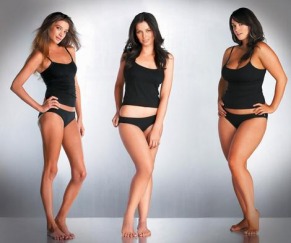- 2,138
- Posts
- 11
- Years
- The States
- Seen Nov 6, 2016
Obesity and Media
We've all heard stories regarding media scrutiny or praise of celebrity and public figures' bodies especially in women. This can be detrimental to a person's body image. This image explains it all:
Spoiler:

However, more and more, we are seeing a reverse in this trend. An embracing of overweight and obese leaders and role models along with a message that overweight and obese people should embrace their bodies.
We see it on the big screen:
Spoiler:

Television Targeting children and teens:
Spoiler:

News Media:
Spoiler:
And, our political leaders:
Spoiler:
Many talk shows, television programs, news reports, and films perpetuate a message that people should not be ashamed of their weight or bodies, and further, they should embrace them and show them off. Is it destructive to enable and condone overweightness and obesity especially in a nation (US) that has the highest rates of overweight and obese citizens? Should shows that have morality messages like Glee, ignore characters' weight issues and represent them as powerful divas or comedy kings and queens that embrace their larger size while castigating those who dare say that these characters need to lose weight?
Models, for instance, often must adhere to strict guidelines of body weight. They cannot be below the threshold of a healthy weight in many jurisdictions. Though, seldom will we see guidelines that prohibit overweight or obese (plus-size) models from walking the runway, despite the health risks associated with the condition.
Well, there is a fine line to be walked. First, the goal should not be to shame people, in the sense that tabloids and diet pill ads regularly do or to idolize underweight persons. The goal should be to point out that being overweight or obese is not 'okay' and to assume a supportive role in helping assume a healthier body rather than focusing on the sex appeal of being thin.
Health Risks of being overweight and obese:
Coronary heart disease
Type 2 diabetes
Cancers (endometrial, breast, and colon)
Hypertension (high blood pressure)
Dyslipidemia (for example, high total cholesterol or high levels of triglycerides)
Stroke
Liver and Gallbladder disease
Sleep apnea and respiratory problems
Osteoarthritis (a degeneration of cartilage and its underlying bone within a joint)
Gynecological problems (abnormal menses, infertility)
(CDC)
Sidenote: BMI is not always the best approach. BMI and Body Fat percentage together are a better way to gauge obesity.
With these conditions comes increased health care cost for all of society.
Again, this is not about which is worse, underweight or overweight, they are both detrimental to one's health.
The question is it, how, and to what extent, should the media deter overweight and obesity?








